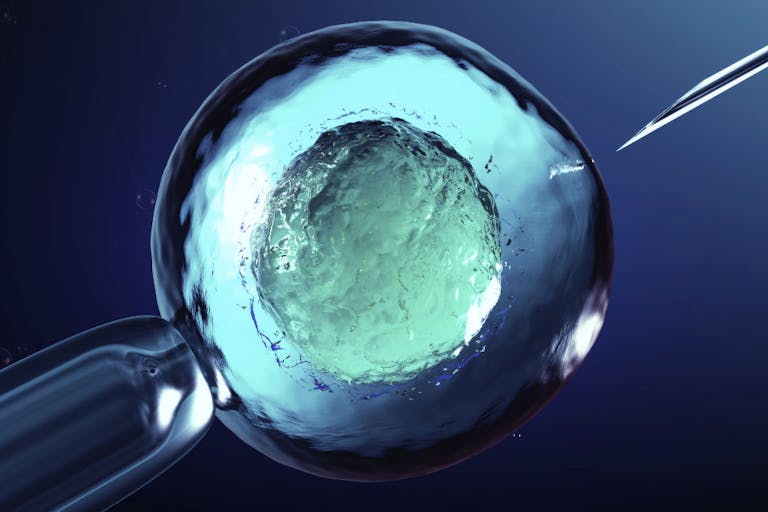
New Archbishop of Canterbury warns of danger in legalizing assisted suicide
Nancy Flanders
·
‘No valid rationale’: Scientists create monkey-human hybrid embryos
Scientists have created embryos that are a combination of human and monkey cells for the first time. They published the results of their research in the journal Cell on Thursday, April 15th.
A stated motivation behind the pursuit of the project was its “promis[e]” as a “strategy for various regenerative medicine applications, including the generation of organs and tissues for transplantation.” Researchers also cite a desire to “better understand early human development and primate evolution and develop strategies to improve human chimerism in evolutionarily distant species.”
The researchers injected 25 human induced pluripotent stem cells, or iPS cells, into macaque monkey embryos. They detected human cells growing in all of the 132 embryos after only a single day. The embryos were allowed to grow and were studied for 19 days, at which point part of the group was “cut into several pieces with a 1mL syringe,” some of which pieces were salvaged for further analysis. Other embryos “were harvested and fixed in 4% (w/v) paraformaldehyde,” before being stained or dehydrated, frozen, cut up, and “prepared as cryosections with 8 μm thickness on pre-treated glass slides.”
The researchers, and some bioethicists, believe the ends justify the means. Juan Carlos Izpisua Belmonte, a co-author of the study, told NPR, “This is one of the major problems in medicine—organ transplantation. The demand for that is much higher than the supply.”
READ: Researchers create organisms nearly identical to humans… for experimentation
And Insoo Hyun, a Professor in the Department of Bioethics at Case Western Reserve University’s School of Medicine who is in favor of revising the current 14-day-limit on human embryo experimentation, told NPR, “I don’t see this type of research being ethically problematic. It’s aimed at lofty humanitarian goals.”
But a number of concerns have been raised about this type of research.
“My first question is: Why?” Kirsten Matthews, a Fellow in Science and Technology Policy at Rice University’s Baker Institute for Public Policy, told NPR.
This question is also implied by Dr. David Prentice and David Christensen, who note that “there has been no valid ethical or scientific rationale for the necessity of creating this type of human-animal chimera,” and further point out that this type of research “create[s] organisms with morally uncertain status.”
Matthews agrees that these are murky waters. “Should it be regulated as human because it has a significant proportion of human cells in it? Or should it be regulated just as an animal? Or something else? At what point are you taking something and using it for organs when it actually is starting to think and have logic?” Matthews asked, concluding, “I think the public is going to be concerned, and I am as well, that we’re just kind of pushing forward with science without having a proper conversation about what we should or should not do.”
“Like” Live Action News on Facebook for more pro-life news and commentary!
Live Action News is pro-life news and commentary from a pro-life perspective.
Contact editor@liveaction.org for questions, corrections, or if you are seeking permission to reprint any Live Action News content.
Guest Articles: To submit a guest article to Live Action News, email editor@liveaction.org with an attached Word document of 800-1000 words. Please also attach any photos relevant to your submission if applicable. If your submission is accepted for publication, you will be notified within three weeks. Guest articles are not compensated (see our Open License Agreement). Thank you for your interest in Live Action News!

Nancy Flanders
·
Analysis
Cassy Cooke
·
Analysis
Nancy Flanders
·
Newsbreak
Angeline Tan
·
Human Interest
Nancy Flanders
·
Issues
Nancy Flanders
·
International
Bettina di Fiore
·
Human Rights
Bettina di Fiore
·
Politics
Bettina di Fiore
·
Human Interest
Bettina di Fiore
·
Activism
Bettina di Fiore
·